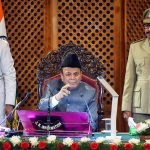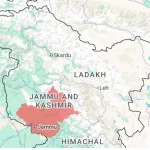2024 is a prominent year with more than 50 countries are going to the polls, including the oldest (United States) and the largest (India) democracies in the world. The US is India’s largest trading partner, with bilateral trade in goods and services reaching over US$ 191 billion in 2022. It is based on shared purpose, democratic values, and shared prosperity, covering almost all areas of human development, including the healthcare sector. Non-communicable diseases, infectious diseases, strengthening health systems and services, and maternal and child health have been key areas of cooperation as iterated during the launch of the US-India Health Initiative in Geneva during the World Health Assembly in 2010. There has been a sustained research collaboration in the health sector under the bilateral vaccine action programme, capacity building programmes such as Epidemic Intelligence Service (EIS), affordable healthcare solutions, Ayurveda, and pharmaceutics. India supplies about 40 percent of generic formulations marketed in the US. Indian pharma companies have manufacturing locations in about 14 locations in the US and the most prominent US Food and Drug Administration-compliant pharmaceutical plants. The India-US Health dialogue provides a platform to deliberate upon multiple ongoing collaborations in the health sector between the two countries. The 2021 India-US Health dialogue witnessed the signing of the Memorandum of Understanding (MoU) to establish cooperation in health and biomedical sciences. The MoU was also signed between the Indian Council of Medical Research (ICMR) & the National Institute of Allergy and Infectious Diseases (NIAID), NIH for cooperation in establishing the International Centre for Excellence in Research (ICER). The US and India, through the state visit of the Indian Prime Minister, and other global platforms such as G20, QUAD, and I2U2, are involved in promoting health collaboration in diverse areas of therapeutics, diagnostics, and vaccines. In addition, the focus on environment, climate change and human health, and antimicrobial resistance have led to strong partnerships to reinforce global health governance, health security, and health diplomacy in the Indo-Pacific region and other parts of the world. However, India and the US had differences in trade issues, such as the Generalized System of Preferences (GSP) and the import of medical devices. The US announcement in March 2019 that it would remove India from its Generalized System of Preferences (GSP) impacted US-India cooperation in several sectors, including health. India has also taken steps to reduce the asymmetry in the import of medical devices/market access that the US accused it of. Beyond health, India-US bilateral cooperation and investments in clean energy, space, defence, and security have influenced and impacted health outcomes. Challenges such as the COVID-19 pandemic, global conflicts, climate change, carbon footprints, UNSC reforms, trade and technology concerns, and the lack of progress in Sustainable Development Goals (SDG) are the pressing umbrella issues impacting the health sector. The Health-in-All-Policies (HIAP) approach as a comprehensive cooperation strategy provides a window of opportunity to enhance India-US cooperation in the current uncertain and challenging global situations. However, progress depends on social and economic determinants, political leadership, political will, and political commitment. Thus, the outcomes of the 2024 elections are vital in progressing the bilateral ties and the alignment of global outcomes between India and the US. The invoking of the Defence Production Act (DPA) by the US to impose an embargo on the export of raw materials needed to manufacture vaccines, rollbacks of environmental protections and its impact on public health, its withdrawal from the Paris Agreement, stoppage of its funds to the World Health Organization (WHO) during the COVID-19 pandemic, US-China conflict, the NATO-EU discussion, and US’s position in the ongoing geopolitical tensions in West Asia, Europe, Africa, and East Asia has changed its global perception. Meanwhile, with its multi-alignment foreign policy, assertive diplomacy, and rebranding as the voice of the Global South in the G20 Summit, India has repositioned itself in the current world order. The political leadership in India and the US has played a significant role in ongoing geopolitical and geoeconomic transformation. However, negotiations and consensus, despite different perspectives and priorities, are required in addressing humanitarian situations and health security issues impacting global supply chains, mobility, and trade. Considering the context, the role of political leadership in India and the US in this defining year of election is a tipping point for global public good and global health security. As the world needs a more robust, resilient global health security framework, India and the US could collaboratively lead this project to protect livelihoods worldwide by leveraging their strengths and reaching a consensus.
Indo-US Health Care Research

Sign Up For Daily Newsletter
Be keep up! Get the latest breaking news delivered straight to your inbox.
By signing up, you agree to our Terms of Use and acknowledge the data practices in our Privacy Policy. You may unsubscribe at any time.
Leave a Comment Leave a Comment
Stay Connected
Latest News
Recent Posts
- CM Omar Abdullah reaffirms social welfare as Government’s primary responsibility
- Speaker Abdul Rahim Rather reiterates PM Modi’s assurance on granting Statehood to J&K
- Danish Renzu’s film ‘Songs of Paradise’ Trailer released on Prime Video
- MeT predicts light snowfall on higher reaches, heavy rain in parts of J&K
- LG Manoj Sinha addresses Convocation of B.R. Ambedkar Bihar University







